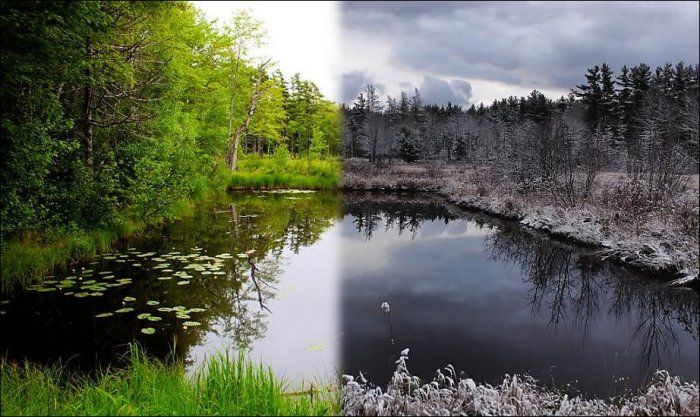|
|
Summer Vs. Winter Photo
|
From an astronomical view, the equinoxes and solstices would be the middle of the respective seasons , but a variable seasonal lag means that the meteorological start of the season, which is based on average temperature patterns, occurs several weeks later than the start of the astronomical season. According to meteorologists, summer extends for the whole months of June, July, and August in the northern hemisphere and the whole months of December, January, and February in the southern hemisphere. This meteorological definition of summer also aligns with the commonly viewed notion of summer as the season with the longest (and warmest) days of the year (365 days), in which daylight predominates. The meteorological reckoning of seasons is used in Austria, Denmark and the former USSR; it is also used by many in the United Kingdom, where summer is thought of as extending from mid-May to mid-August. In Ireland, the summer months according to the national meteorological service, Met Éireann, are June, July and August. However, according to the Irish Calendar summer begins 1 May and ends 1 August. School textbooks in Ireland follow the cultural norm of summer commencing on 1 May rather than the meteorological definition of 1 June.
From the astronomical perspective, days continue to lengthen from equinox to solstice and summer days progressively shorten after the solstice, so meteorological summer encompasses the build-up to the longest day and a diminishing thereafter, with summer having many more hours of daylight than spring. Solstices and equinoxes are taken to mark the mid-points, not the beginnings, of the seasons. Midsummer takes place over the shortest night of the year, which is the summer solstice.
The Western definition based on solstice to equinox is more frequently used where a temperature lag of up to half a season is common. In North America, summer is often the period from the summer solstice (usually June 20 or 21 in the Northern Hemisphere) to the autumn equinox. Unofficially, the U.S. summer season is commonly regarded as beginning on Memorial Day weekend in May and ending on Labor Day weekend in September.
In Chinese astronomy, summer starts on or around 5 May, with the jiéqì (solar term) known as lìxià (立夏), i.e. "establishment of summer", and it ends on or around 6 August.
|
|









